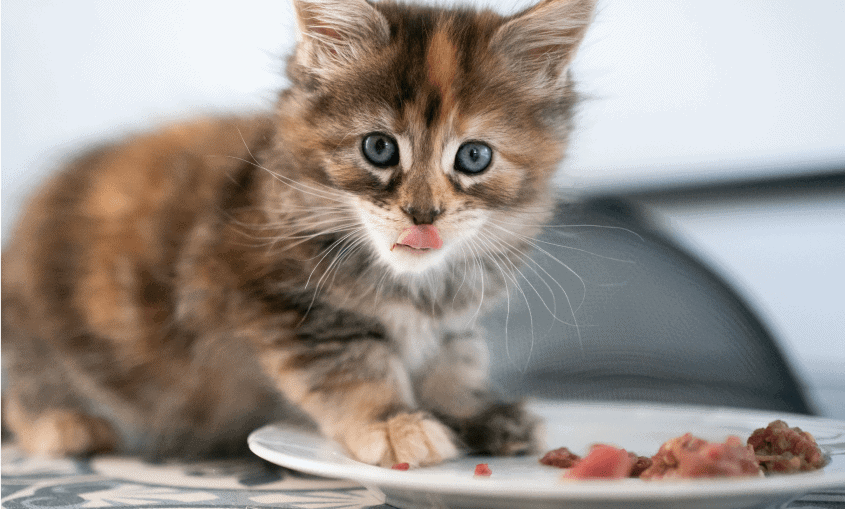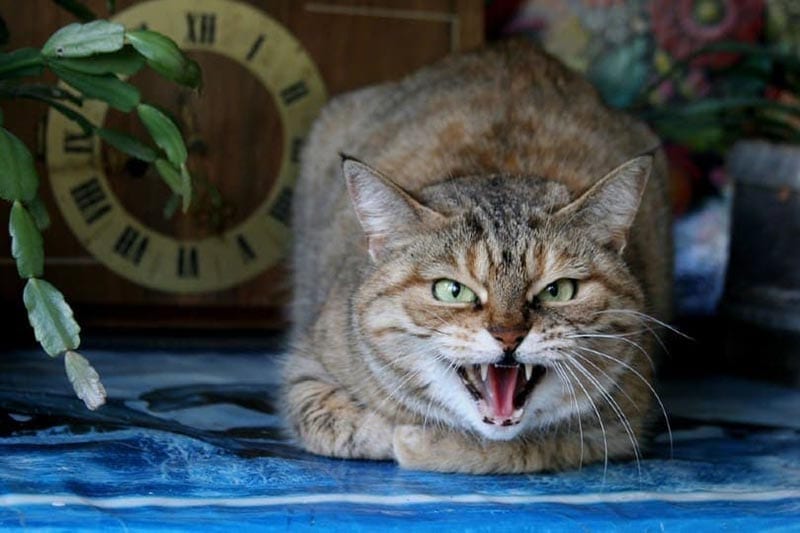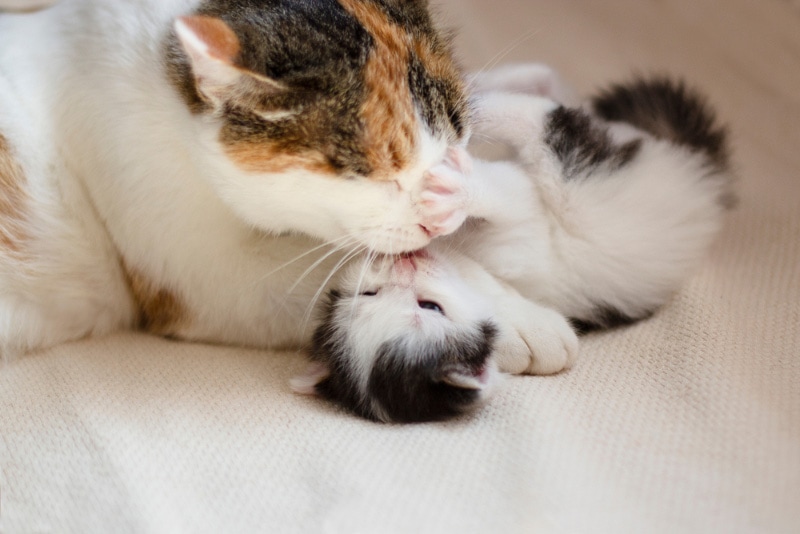How Long Does a Cat Hold a Grudge? Here’s How to Apologize
Updated on
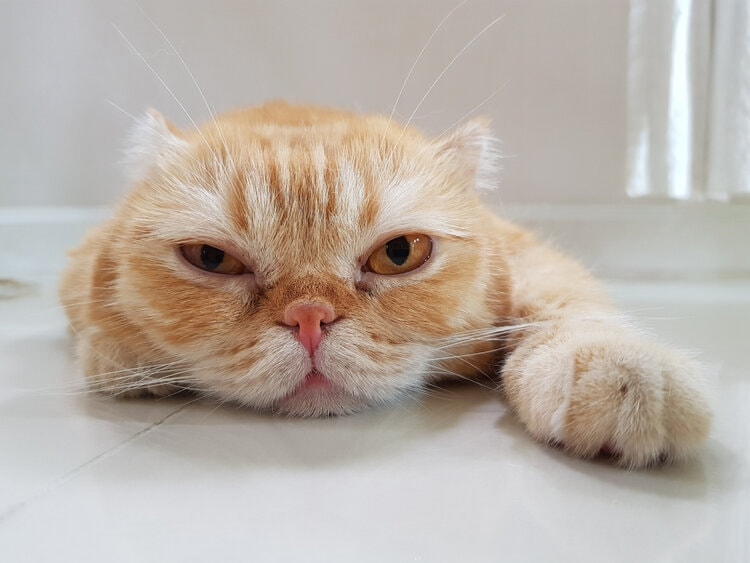
Click to Skip Ahead
As a cat owner, you’ve likely had a moment where you believe you’ve accidentally ruined your entire relationship with your cat. Maybe you accidentally stepped on her tail as she was trying to zip by you during her daily zoomies session. Perhaps you shifted your body ever so slightly after she fell asleep on you and woke her up. While your cat may be hostile toward you after such incidents, it’s not likely your kitty will hold a grudge against you for long.
Read on to learn more about grievances, whether cats can hold them, and how to apologize after you’ve performed a slight against your pet.
Do Cats Hold Grudges?
While your cat-BFF may not be pleased with some of your actions, calling it a grudge is inaccurate.
The word “grudge” implies some level of resentment, which may go beyond what cats can experience on an emotional level. Grudges are typically brought on by a desire for revenge and are often felt in conjunction with other deep emotions like jealousy and anger. While humans can hold grudges, cats don’t actually have the capacity to do things with malicious or vengeful intent.
However, cats can remember negative experiences, so in that sense, they may be able to hold a grudge if they’ve previously been harmed.

How Long Do Cats Remember Things?
There isn’t much research regarding cat cognition, especially compared to their canine counterparts. However, researchers do know that cats have different types of memories, just like humans.
Working Memory
Working memory allows humans to keep information readily available for several minutes. For example, we use our working memory when remembering a phone number. It will enable us to make decisions and work out problems. One study suggests that cats have a limited working memory.
Short-Term Memory
Short-term memory falls between working and long-term memory, referring to a period where recalling information you were just exposed to is possible. Cats mostly use this memory to solve problems, most often involving their access to food. Most cat owners know their pets are incredibly skilled at accessing their “well-locked up” food, and that is because of their cat’s short-term memory, which encodes and recalls events and information they’ve learned within the past 16 hours.
Long-Term Memory
A cat’s long-term memory allows them to remember events and information from their past. It helps them recognize a loved one who was away after a long period of separation. It also appears to be the driving force behind cats’ avoidance of certain people or negative reactions to specific environments. A cat’s long-term memory links humans, sounds, and settings to positive or negative experiences.
A cat’s memory helps them work out problems, but it also allows them to prevent problems they’ve experienced in the past from happening again. A cat that remembers something bad happening will do whatever it can to ensure it doesn’t happen again, making it seem like your kitty is holding a grudge.
How Long Will My Cat Hold a Grudge?
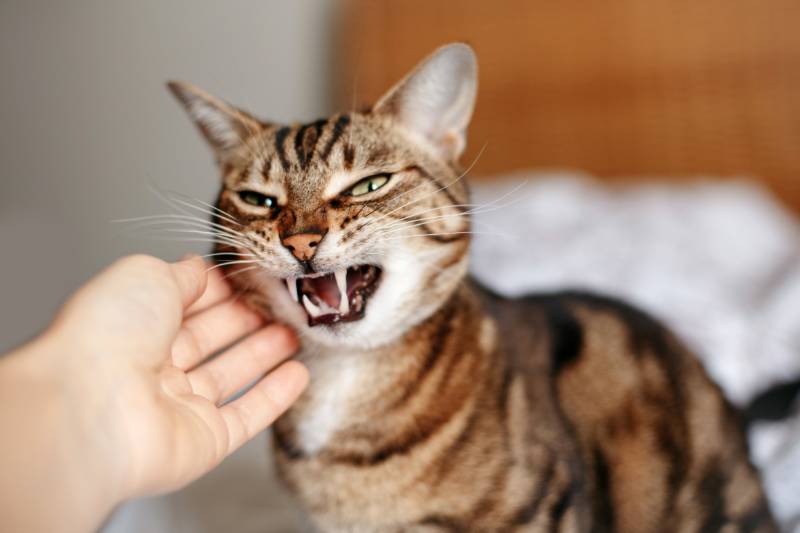
There’s no hard and fast rule for how long your cat will hold onto a bad memory. For many kitties, a minor misdemeanor may fall into their short-term memory, destined to be forgotten within a few hours.
However, how long a cat will remember an event will also depend on the seriousness and repercussions of the wrongdoing. For example, a cat whose paw has been stepped on may only “hold a grudge” for as long as the foot hurts, a few hours at most. But one whose leg was sprained or broken from getting stepped on will be more likely to commit that event to their long-term memory, especially if it resulted in a long car ride and a traumatic visit to the vet.
The same applies to repeat negative events. If you’re constantly punishing or mistreating your cat, they may “hold a grudge” against you simply because they have formed an association with these negative events.
How Can I Apologize to My Cat?
Spend Time With Him
The best way to apologize to your kitty for your wrongdoing is to engage with them in a way they like. For example, if your kitty is food motivated, offering him his favorite treats will go far in getting you onto his good side again. If he’s more play-motivated, spending several minutes a few times per day playing with his favorite interactive wand toy is a great way to get in his good books again.
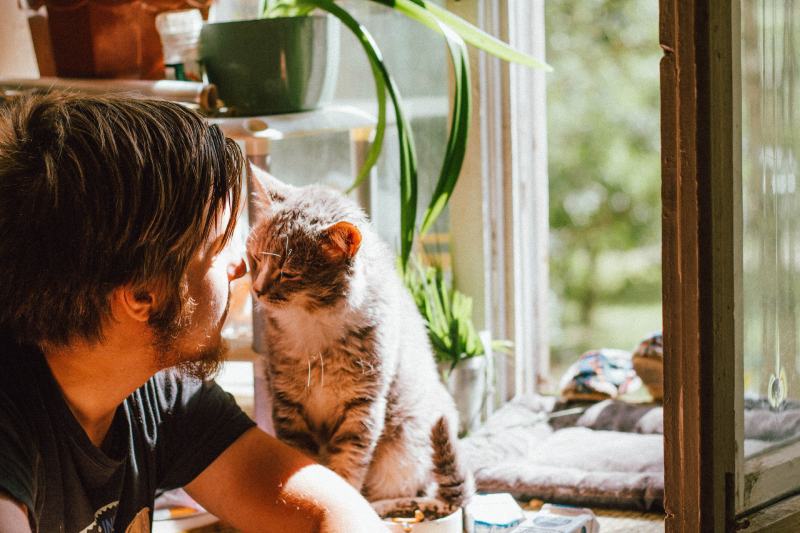
Give Him Space
Depending on your cat’s personality, he may just need some time to forgive you. His body language will let you know what makes him uncomfortable, so you should always look for the subtle (and not-so-subtle) clues he’s sending so you can honor his boundaries. If your cat doesn’t care for snuggles, forcing him to be held and petted won’t get you very far.
- Arched back
- Dilated pupils
- Hiding
- Crouching
- Ears flicking back and forth
- Raised tail
Know When to Approach
Now that you know how to read your cat’s body language and respect his boundaries, you know when to approach him. When he gives you the green light, you can approach him and pet him in his favorite spots. If you’re not sure where he likes to be petted, give these a go:
- Behind the ears
- Under the chin
- Against the cheek
- On the head
- Down the back
Use a Calm Voice
When apologizing to your kitty, use his name and speak in a soft, calm voice in a higher pitch than usual. While your kitty won’t understand the words you’re using, he can differentiate between pitches and tones.
Slow blink as you speak to him. Slow blinking is a cat’s way of showing that he trusts and loves you. If you reciprocate the motion, he will understand what message you’re trying to convey.
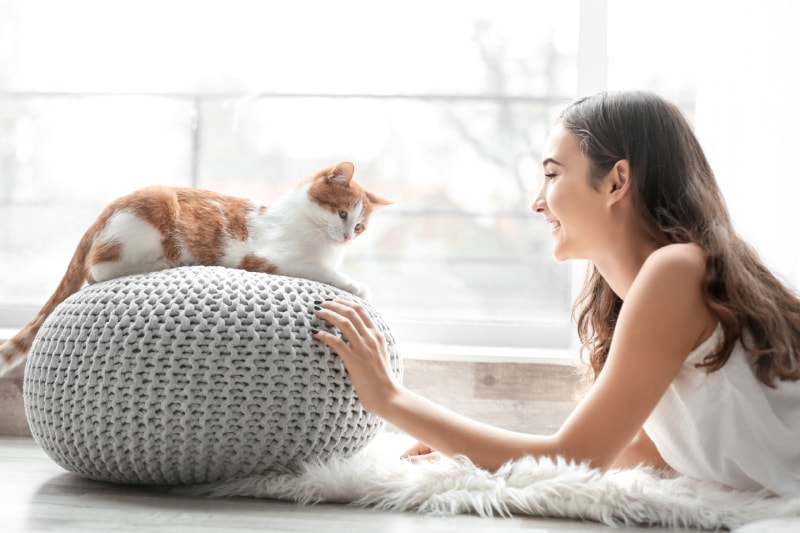
How Can I Know If My Cat Is Mad at Me?
Cats may not be able to use words to communicate, but their body language makes how they feel very apparent. You will know your kitty is mad at you if they exhibit behaviors such as:
- Hiding or leaving when you enter the room
- Hissing or growling
- Swiping at you with their paws
- Staring at you with dilated pupils
- Flat ears pressed low into their skulls
- Avoiding eye contact
Final Thoughts
While cats don’t hold grudges as humans do, they can certainly form negative associations with events, behaviors, and people. Cats can display behaviors that look like grudges, but they likely don’t have the same underlying causes as the ones we experience as humans. Chances are that most cats who appear to be filing a grievance against you may just be trying to protect themselves, not holding a grudge. If there’s been an incident that has you worried about your relationship with your kitty, try to give him some space to allow him to calm down and forget.
Featured Image Credit: Nana Trongratanawong, Shutterstock


